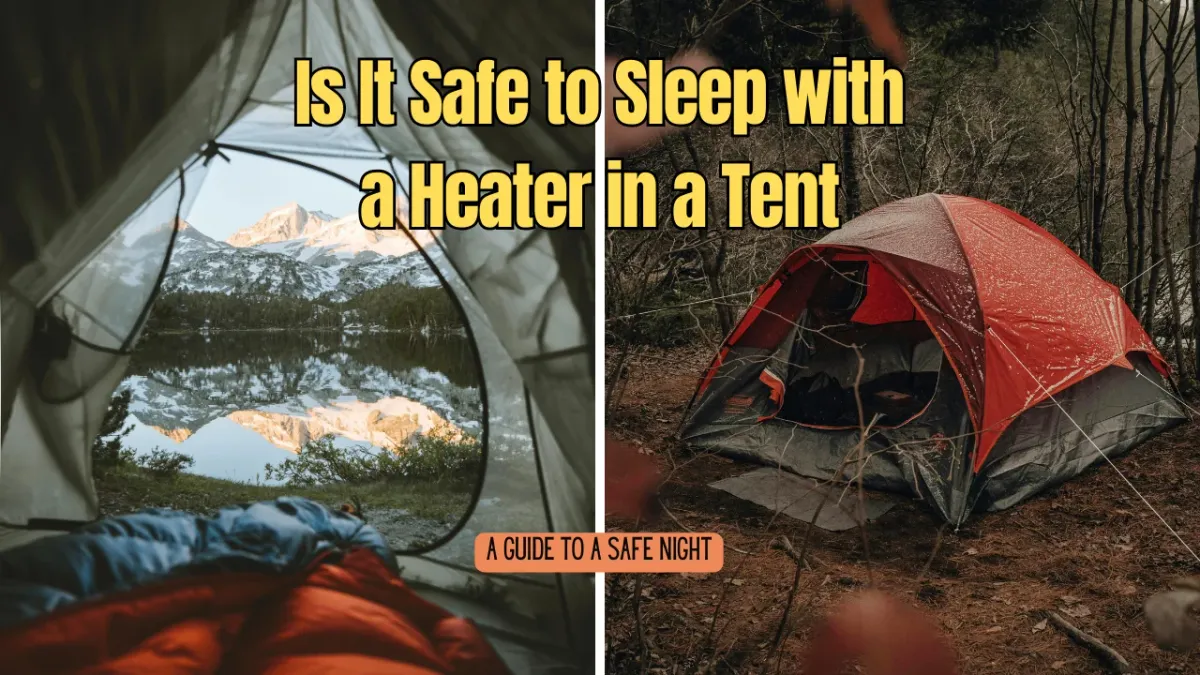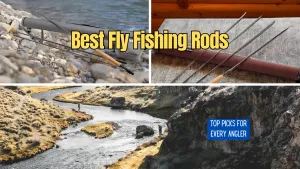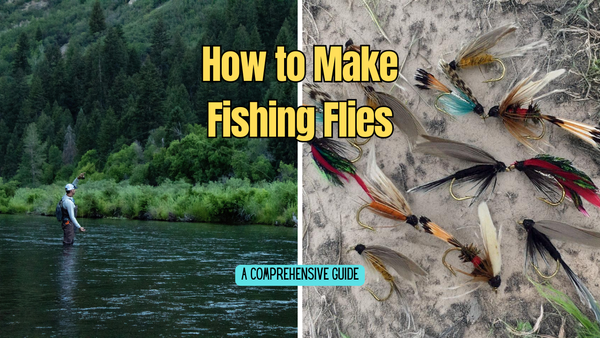When the temperature drops, the idea of a cozy, warm tent is incredibly appealing. Many campers turn to propane heaters as a solution, but the question remains: Is it safe to run a propane heater in a tent? This article explores the safety aspects, precautions, and best practices for using propane heaters during tent camping.
Key Takeaways:
- Safety First: Always prioritize safety by choosing propane heaters with built-in safety features like oxygen depletion sensors and automatic shut-off mechanisms.
- Ventilation is Crucial: Proper ventilation is essential to prevent the buildup of carbon monoxide, which can be lethal.
- Follow Instructions: Adhering to the manufacturer’s safety instructions and guidelines can significantly reduce risks associated with using propane heaters in tents.
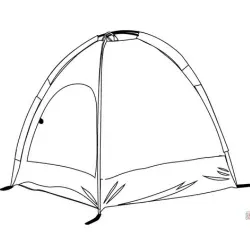
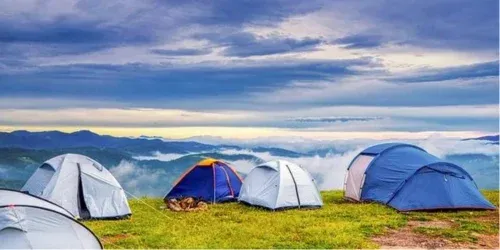
Understanding Propane Heaters and Their Operation
Propane heaters are popular among campers due to their portability and efficiency in heating. These devices burn propane gas to produce heat, which makes them handy for outdoor use, especially in cold weather. However, their operation involves combustion, which can produce harmful byproducts like carbon monoxide if not managed correctly.
The Risks of Carbon Monoxide Poisoning
Carbon monoxide (CO) is a dangerous, invisible gas that is both colorless and odorless, making it extremely difficult to detect without proper equipment. This gas can prove fatal when inhaled in significant amounts. Propane heaters, commonly used for heating in various settings, produce carbon monoxide as a byproduct of burning propane. Consequently, there is a heightened risk of carbon monoxide poisoning, particularly when these heaters are used in poorly ventilated areas such as tents or small rooms.
It is crucial to ensure adequate ventilation when operating propane heaters to prevent the accumulation of carbon monoxide and safeguard against the potential health hazards associated with its inhalation. Awareness and preventive measures can significantly reduce the risk of CO poisoning and ensure safe usage of propane heating devices.
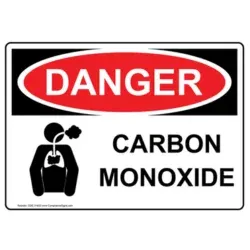
Choosing the Right Propane Heater
When selecting a propane heater for indoor environments or tent camping, it's crucial to choose models that are specifically designed for safe indoor use. Opt for heaters that are clearly marked as "indoor-safe." This ensures that they meet safety standards appropriate for enclosed spaces, helping to prevent potential hazards such as carbon monoxide buildup.
Safety Features to Look For
Ensure your tent remains safe and warm by choosing heaters equipped with essential safety technologies. Opt for models that include an oxygen depletion sensor (ODS), which automatically powers down the heater if indoor oxygen levels fall below safe thresholds. Additionally, prioritize heaters with a tip-over switch, a crucial feature that immediately shuts off the heater if it is accidentally knocked over. These safety mechanisms not only provide peace of mind but also help prevent potential accidents, making them ideal for tents.
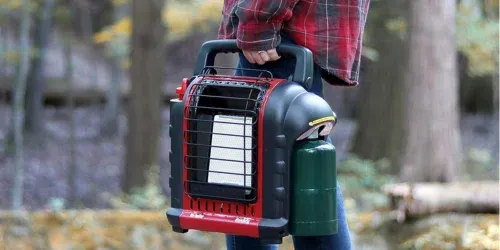
Installation and Usage Guidelines
To ensure safety and efficiency when using a propane heater inside a tent, it is crucial to adhere strictly to the manufacturer's guidelines. Proper installation and operation not only enhance safety but also optimize the performance of your heating equipment. Always consult and follow the detailed instructions provided by the manufacturer to avoid any risks associated with improper use.
Setting Up Your Heater
When using a heater during your camping trip, it's crucial to position it correctly to ensure safety and comfort. Always place the heater on a stable, level surface to prevent it from tipping over. Keep it at a safe distance from tent walls, sleeping bags, and any flammable materials to avoid fire hazards. Additionally, proper ventilation is essential to prevent the buildup of dangerous gases. Consider keeping the tent door or a vent open to ensure there is adequate airflow. By following these simple guidelines, you can enjoy a warm and safe camping experience.
Ventilation: A Critical Safety Measure
Proper ventilation is essential when utilizing combustion-based heat sources inside tents. Ensuring adequate airflow can significantly reduce the risk of harmful gas accumulation, particularly carbon monoxide, which can be fatal. This safety measure not only protects your health but also enhances the overall camping experience by maintaining a safe and comfortable environment.
How to Ventilate Properly
To promote safe and effective ventilation when using a heater in your tent, it is crucial to maintain an open tent door or window. Keeping at least one ventilation point partially open while the heater operates ensures a continuous flow of fresh air. This practice not only enhances air circulation but also significantly reduces the risk of carbon monoxide buildup, safeguarding your health and well-being during outdoor adventures.
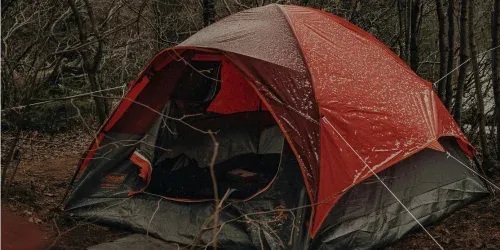
Monitoring Carbon Monoxide Levels
Even with adequate ventilation, monitoring carbon monoxide (CO) levels in your tent is crucial for camping safety. Investing in a portable carbon monoxide detector can significantly enhance your peace of mind by providing timely alerts if CO levels become dangerously high. This simple tool is essential for ensuring a safe and enjoyable outdoor adventure.
Essential Safety Features in Propane Heaters for Tent Use
When considering whether it is safe to run a propane heater in a tent, it's crucial to focus on the safety features integrated into the heater. Modern portable propane heaters, like the Mr. Heater Buddy series, often come equipped with an oxygen depletion sensor (ODS) and automatic shut-off mechanisms. These features are designed to turn the heater off automatically if oxygen levels in the tent drop too low or if the heater tips over. This significantly reduces the risk of fire and carbon monoxide poisoning, making them a safer choice for heating enclosed spaces like tents.
Additionally, many tent heaters now include a carbon monoxide detector, which provides an extra layer of safety by alerting campers to dangerous levels of carbon monoxide. It's important to ensure that these features are clearly listed and verified when selecting a heater. Always follow the manufacturer's instructions for use and never leave the heater unattended in the tent, as even the safest heater can become a hazard if not used properly. Regular maintenance and checks before each camping trip can further enhance safety.
Comprehensive Guide to Carbon Monoxide Detectors in Tents
When considering whether it is safe to run a propane heater in a tent, the importance of carbon monoxide detectors cannot be overstated. These devices are critical in preventing carbon monoxide poisoning, a silent but deadly threat in enclosed spaces. A carbon monoxide detector should be a non-negotiable addition to your camping gear, especially when using any type of gas heater. Ensure the detector is specifically designed for indoor use and test it before each camping trip to confirm it's working correctly.
Moreover, placement of the carbon monoxide detector within the tent is crucial. It should be positioned according to the manufacturer’s instructions, generally away from the heater itself but still in a location where it can accurately read the air you breathe. Many seasoned campers recommend placing it at 'sleeping height' to ensure it detects any carbon monoxide that may accumulate where you breathe. Regularly check the batteries and consider a detector with a digital display to monitor levels constantly.
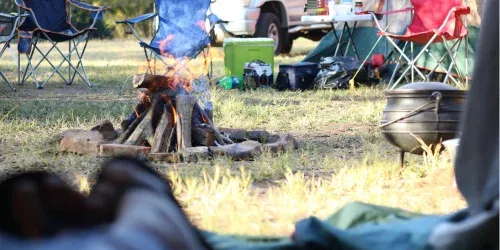
Safe Practices for Using Propane Heaters in Cold Weather Camping
Using a propane heater during cold weather camping trips requires adherence to specific safety guidelines to ensure a warm yet safe environment inside the tent. First, always use propane heaters that are approved for indoor use, such as the Mr. Heater Portable Buddy, which comes equipped with an oxygen depletion sensor and automatic shut-off features. These safety features are vital in preventing fire hazards and ensuring the air inside the tent remains breathable.
Additionally, during winter camping, it's essential to maintain proper ventilation to avoid the build-up of harmful gases, despite the cold. Slightly opening the tent door or a vent can facilitate adequate airflow. Also, keep the heater on a stable, level surface away from sleeping bags, tent walls, and other flammable materials. Never leave the heater unattended, especially overnight, as this increases the risk of fire. By following these precautions, you can stay warm safely, even on the coldest days.
The Role of Proper Ventilation When Using Heaters in Tents
Proper ventilation is paramount when using any type of tent heater to prevent the buildup of carbon monoxide and maintain a safe breathing environment. Ensuring that the tent door or a window is slightly open can facilitate adequate airflow, which helps disperse any potentially harmful gases. This is especially important in tightly sealed environments where propane heaters are in use. Even heaters labeled as "indoor-safe" require some degree of ventilation to operate safely in small, enclosed spaces like tents.
Moreover, the layout of the tent and the placement of the heater play a critical role in effective ventilation. The heater should be positioned away from sleeping areas and flammable materials such as sleeping bags, tent walls, and other camping gear. Keeping the heater on a stable, non-flammable surface and away from the tent door or any major airflow can prevent accidents and ensure the heat is distributed evenly throughout the tent. Always consult the safety guidelines provided with the heater and consider the specific conditions of your camping site to optimize safety and comfort.
Importance of Carbon Monoxide Detectors
Using a propane heater inside your tent can enhance your camping experience by keeping you warm. However, it's crucial to prioritize safety to prevent the risk of carbon monoxide poisoning. A carbon monoxide detector is an indispensable safety device that monitors the air quality inside your tent.
Carbon monoxide (CO) is a colorless, odorless gas that can be deadly if inhaled in large quantities. Since propane heaters emit carbon monoxide as a byproduct of burning fuel, having a detector is essential. It serves as an early warning system, alerting you to evacuate immediately if carbon monoxide levels become dangerously high.
Investing in a reliable carbon monoxide detector can be a lifesaver, ensuring that your adventures in nature are safe and enjoyable. Remember, safety should never be compromised, especially when using fuel-burning appliances like propane heaters in enclosed spaces such as tents.
Safe Practices for Overnight Heating
Leaving a propane tent heater unattended overnight can pose significant safety risks. It is crucial to implement stringent safety measures if you intend to use a propane heater while sleeping. Ensuring your safety with the right precautions can prevent potential hazards associated with overnight use of propane heaters.
Heater Safety During Sleep
When using a heater overnight, it's crucial to prioritize safety and efficiency. To minimize risks, always choose a heater equipped with an automatic shut-off feature. This function is essential as it helps prevent overheating and potential fire hazards. Additionally, for optimal safety, position the heater at a safe distance from any sleeping areas.
To enhance comfort while conserving energy, consider warming up your tent or room before you go to bed and then turn off the heater while you sleep. This method ensures you stay warm without the continuous operation of the heater, promoting a safer and more energy-efficient environment.
Alternatives to Propane Heaters
If you're concerned about the safety risks associated with propane heaters, there are several safer alternatives available to ensure warmth in your tent. These options provide efficient heating solutions without compromising on safety, making your camping experience both comfortable and secure.

Non-Combustion Heat Sources
In the colder months, staying warm is essential, but safety should never be compromised. Traditional combustion heaters, while effective, carry risks such as carbon monoxide poisoning and fire hazards. Fortunately, there are safer alternatives that can keep you cozy without these dangers.
Electric Blankets: A popular choice for many, electric blankets deliver controlled warmth where you need it most. They are an energy-efficient way to stay warm, allowing you to lower your thermostat at night, which can help reduce your heating bill.
Hot Water Bottles: Simple yet effective, hot water bottles can be used to pre-warm your bed or to keep your feet warm. They are portable, reusable, and don’t require electricity, making them perfect for both home use and travel.
Sleeping Bags and Pads: Originally designed for camping, sleeping bags and pads are excellent for indoor use as well. They are designed to trap body heat and provide insulation from cold air or surfaces. Using them in your bed can enhance your sleeping comfort significantly.
By opting for these alternatives, you not only ensure your safety but also potentially lower your energy consumption during the winter months.
Legal and Environmental Considerations
Many areas enforce specific regulations concerning the use of propane heaters in tents, primarily due to the significant fire risks and environmental concerns associated with their use. It's crucial for campers and outdoor enthusiasts to be aware of and comply with these local guidelines to ensure safety and environmental protection.
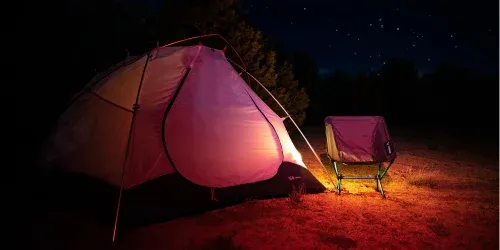
Summary
Using a propane heater in a tent can be safe if proper precautions are taken. Key safety measures include choosing the right heater with necessary safety features, ensuring good ventilation, and using carbon monoxide detectors. Always prioritize safety over comfort and follow all manufacturer guidelines and local regulations.
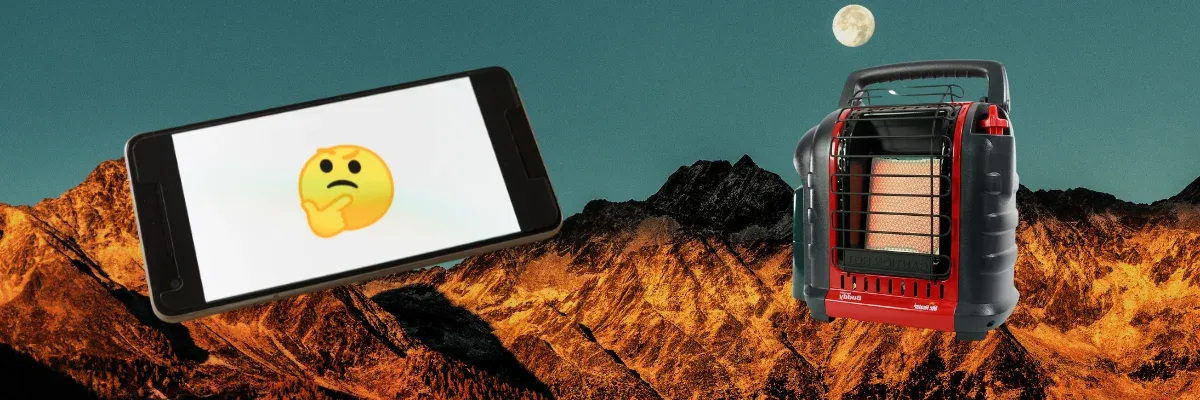
FAQs
Can I leave a propane heater running all night in my tent?
It is generally not recommended to leave a propane heater running unattended while sleeping due to the risks of carbon monoxide poisoning and fire. Consider pre-heating the tent and turning off the heater before you go to sleep.
What are the signs of carbon monoxide poisoning?
Symptoms of carbon monoxide poisoning include headache, dizziness, weakness, upset stomach, vomiting, chest pain, and confusion. If you suspect CO poisoning, get to fresh air immediately and seek medical help.
Are there any propane heaters specifically designed for tent use?
Yes, some propane heaters are designed for indoor use and are considered safe for tents. Look for models with safety features such as oxygen depletion sensors and automatic shut-off mechanisms. Brands like Mr. Heater offer models popular among campers, such as the Portable Buddy and Little Buddy heaters.
Related articles:
